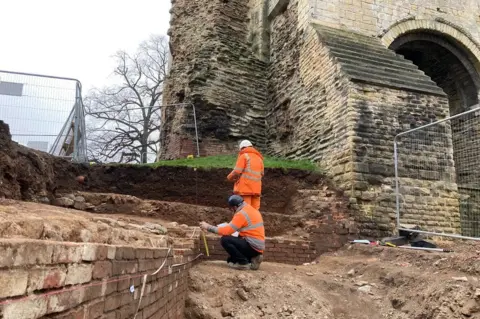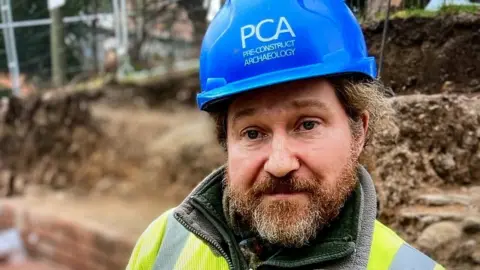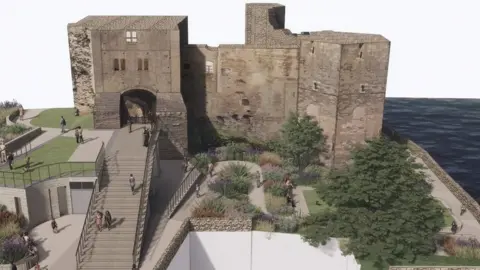Newark: Archaeological dig reveals industrial past of castle site
 BBC
BBCArchaeologists have revealed some remains of a Nottinghamshire castle's industrial past.
Experts have opened up some of the grounds at Newark in advance of work to install an access ramp.
The castle dominates a crossing of the River Trent but was largely demolished after civil war.
The dig has uncovered the remains of what is believed to have been stables, as well as part of a coal wharf dating back to the late 18th Century.

An area outside the main gate has been opened up, revealing a rough stone wall, with a more substantial red brick structure with low arches built into it.
Philip Jefferies, supervising archaeologist, said: "We believe that the stone structure is the earliest part of this development and dates back to the late 18th Century or early 19th Century.
"We believe it is a retaining wall which fronted on to the river."
The river would have been a major route for the transportation of coal from the numerous local collieries.
 Newark and Sherwood District Council
Newark and Sherwood District CouncilAmong the finds are a heat-damaged brick, possible evidence of blacksmithing, and part of a horse skull.
"That was a nice thing to find," said Mr Jefferies. "And it does tie in nicely with what we know of the area, which had a cattle market in it and the fact the structure we are recording now is a stable block."
Project development manager Sarah Clarke said: "Newark Castle has been here for around 1,000 years going through different phases throughout its life.
"But it has always been a really important part of the town and community.
"We are learning a lot about the medieval period and we know quite a bit about the Victorian period.
"But this came between those, before the castle gardens were landscaped as you see today."
It is still to be decided whether the structures found will be left uncovered as part of the redevelopment.

Follow BBC East Midlands on Facebook, X, or Instagram. Send your story ideas to [email protected]
